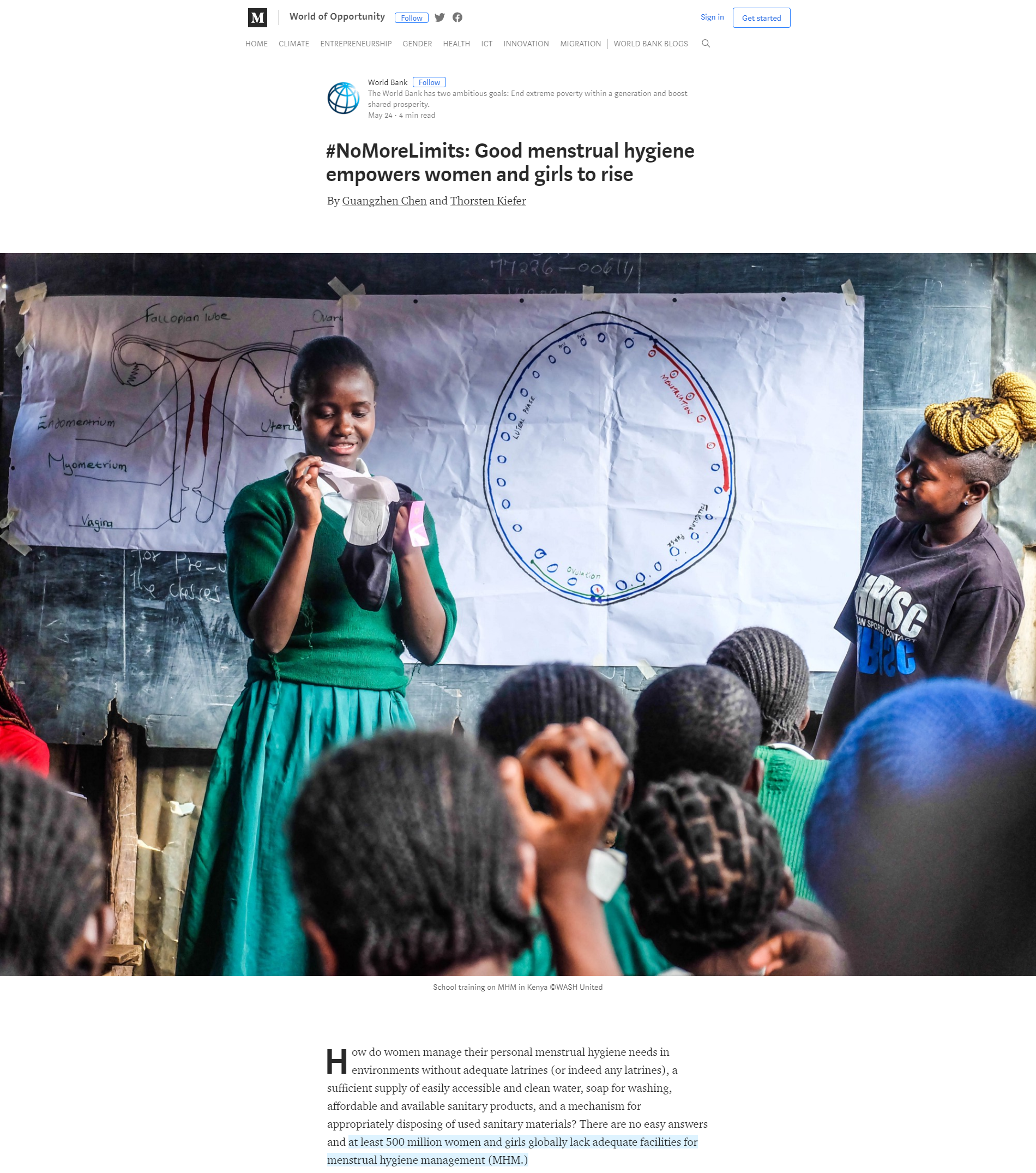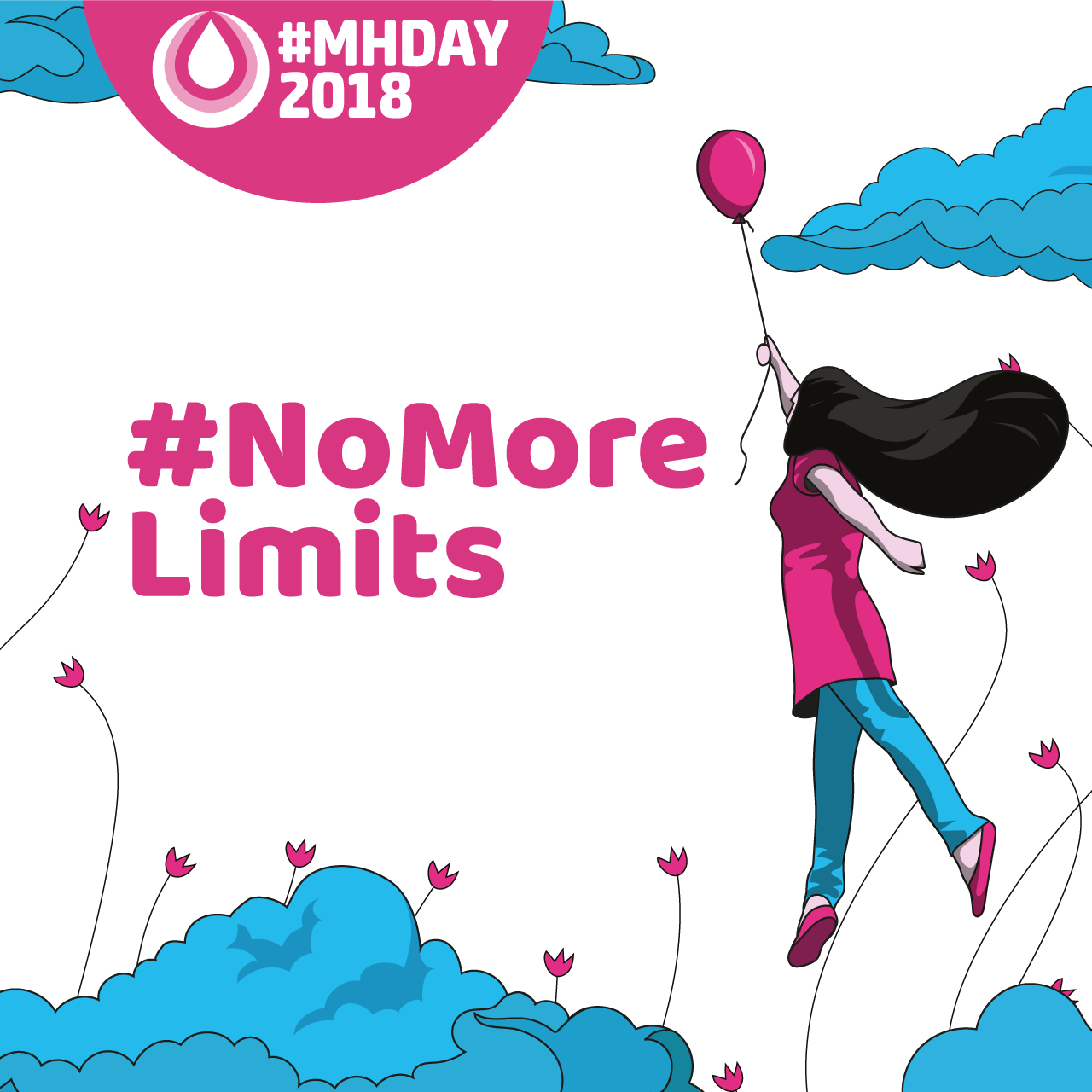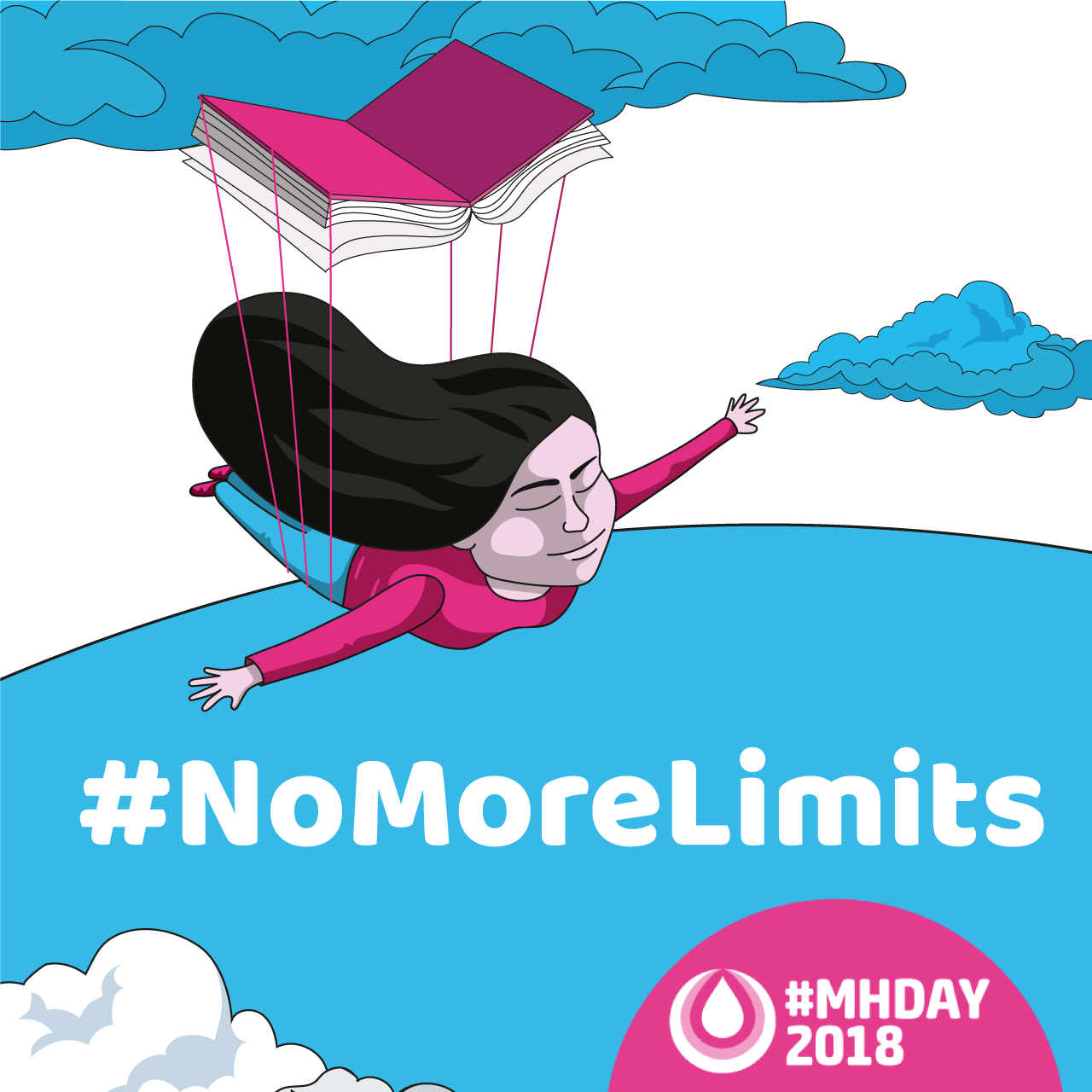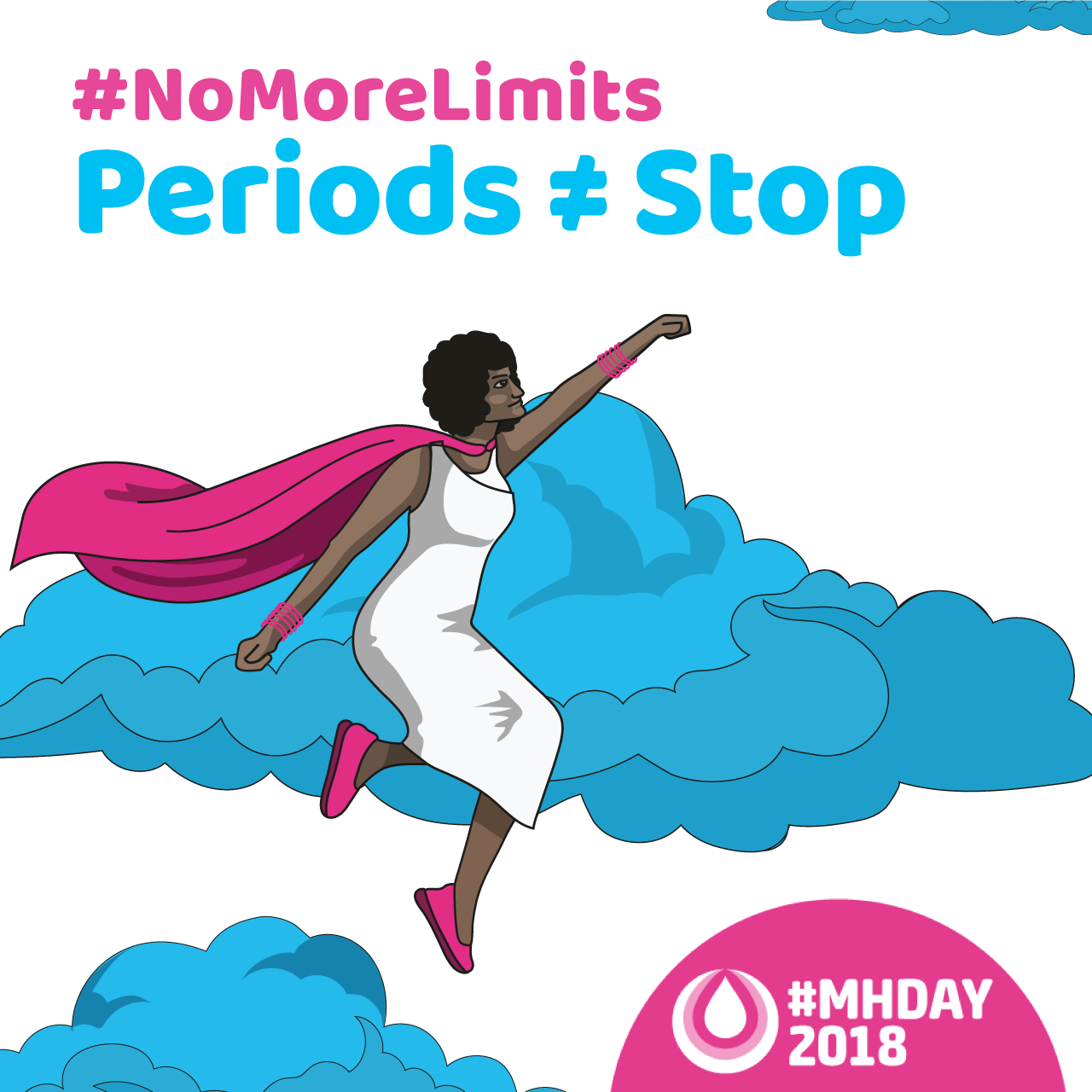The Challenge
At least 500 million women and girls globally lack adequate facilities for menstrual hygiene management (MHM). Inadequate WASH (water, sanitation and hygiene) facilities, particularly in public places, such as in schools, workplaces or health centers, can pose a major obstacle to women and girls. The lack of separate toilets with doors that can be safely closed, or the unavailability of means to dispose of used sanitary pads and water to wash hands, means that women and girls face challenges in maintaining their menstrual hygiene in a private, safe and dignified manner. A growing body of evidence shows that girls’ inability to manage their menstrual hygiene in schools, results in school absenteeism, which in turn, has severe economic costs on their lives and on the country.
The challenge menstruating girls and women face is often less tangible than simply the availability of infrastructure, and is rooted in social norms and beliefs. In many cultures, menstruating women are considered impure and are systematically excluded from participating in every-day activities, such as education, employment, and cultural and religious practices. Moreover, the taboos and stigmas attached to menstruation lead to an overall culture of silence around the topic, resulting in limited information on menstruation and menstrual hygiene. Such misinformation can have ramifications on the health and dignity of girls and women. A recent World Bank Group (WBG) study examining the complex relationship between water and gender, ‘The Rising Tide: A New Look at Water and Gender’, illustrates how a disregard of menstrual hygiene needs serves to entrench the lower status of women and girls.
Given the multiple challenges women and adolescent girls face, it is evident that promoting menstrual hygiene management (MHM) is not only a sanitation matter; it is also an important step towards safeguarding the dignity, bodily integrity and overall life opportunities of women and girls. In line with its overall commitment to promoting gender equality, the World Bank is engaged in furthering the MHM agenda. Through a range of technical and analytical initiatives it aims to better understand and address issues of MHM, and to thereby elevate the dialogue on the importance of MHM.
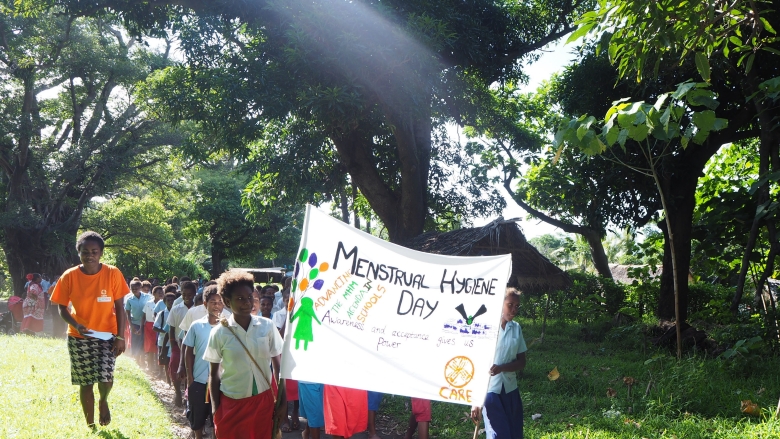
Recent Evidence
Recent research from the WASH Poverty Diagnostics sheds a light on MHM issues in several countries and their impact on human development outcomes. In Nigeria, for instance, 25 percent of women lack adequate privacy for defecation or menstrual hygiene management. In Bangladesh, only six percent of schools provide education on MHM, resulting in low knowledge of menstruation. In addition, over one-third of girls surveyed in this country claim that menstrual issues adversely affect their school performance. In Panama, school attendance of girls is also affected by lacking MHM in where girls in sixth grade are six to ten percentage points more likely to have missed at least one day of school during the past six months, compared to boys in the same grade or girls in lower grades.
Both contributing to and building upon such evidence are projects and programs across the world. In Ghana, for instance, the World Bank is providing sanitation infrastructure and hygiene education in over 260 schools. This project was shaped by focus group discussions with more than160 girls, which found that inadequate WASH facilities, a lack of sanitary products, and negative cultural norms were reducing girls’ attendance. Qualitative studies on MHM have also informed the design of multiple projects including an education project in Haiti, which incorporated an MHM component based on recommendations that emerged out of a qualitative survey. The importance of carrying out contextual research before proposing an intervention, is outlined in a recent guidance note on integrating MHM in the water sector.
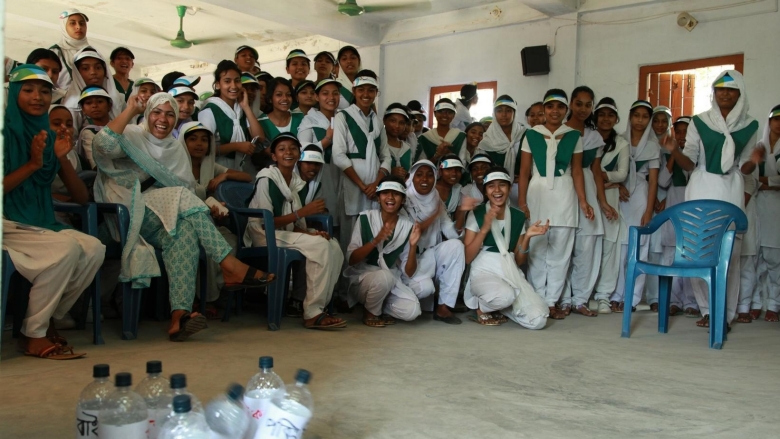
Moving the Needle at the National Level and the Global Level
MHM has also been included in large-scale programs. A flagship sanitation operation supported by the WBG in India, the Swachh Bharat Mission, includes measures on constructing facilities that cater to the needs of menstruating girls, and on raising awareness among the community, including among boys and men, with the objective of breaking the taboo around menstruation. Taking on a systematic and sectoral approach, a new Education Sector Plan in Liberia includes a sub-component that ensures that facilities for MHM and infrastructure for students with disabilities are considered in the design of WASH programs, school-based training and school improvement planning. Similarly, a school WASH initiative in Ethiopia includes MHM as a major focus, as part of its overall objective of improving the school enrollment and attendance of girls. Such partnerships between the World Bank and client governments have succeeded in moving the needle on MHM at the national level.
In its efforts to further the MHM agenda, the World Bank also partners with organizations working in the field. A rural water supply and sanitation project in the Kyrgyz Republic, for example, is supporting the Government to scale up an MHM package developed by UNICEF and Save the Children to 100 additional schools. This package includes both physical improvements of WASH facilities that address girls’ needs to manage their menstrual hygiene in a private and convenient manner, as well as guidance and training to teachers on MHM education.
In addition, the World Bank is collaborating with WASH United during Menstrual Hygiene Day to increase global awareness on MHM and catalyze social norm change. And with Inclusion as one of its five themes, the Global Water Security and Sanitation Partnership (GWSP) is also contributing to the global conversation on this issue.
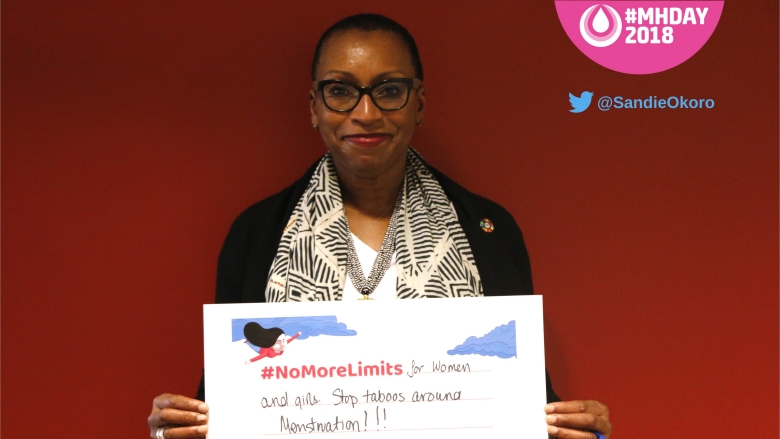
Measuring What Counts… and What Can be Measured
Progress in WASH, including in MHM, needs to be monitored if we want to achieve the Sustainable Development Goal of ensuring adequate water and sanitation for all. A recent report by the World Bank and the Inter-American Development Bank, "Innovations in WASH Impact Measures: Water and Sanitation Measurement Technologies and Practices to Inform the Sustainable Development Goals", provides an overview of innovations in the monitoring of WASH impact measures. One of the indicators proposed in this report, monitors ‘equity’ in sanitation, assessing whether menstruating women and girls are able to wash and change in privacy while at home.

